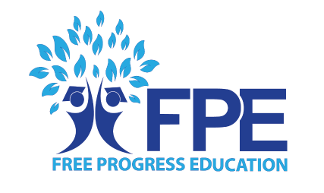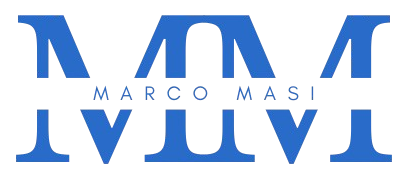
FPE Synopsis
What we should get rid of:
1. Teaching and timetables as well as age-oriented grades. The compulsory and graduation-centered school is off the table. There are no grades, certificates, or degrees in the traditional sense. The traditional format of compulsory teaching with attendance constraints, in which one has to sit every day for hours in the classroom, forced to learn six to eight or more subjects, which do not really interest, but where fear is the primary driving factor, should be replaced by intrinsic motivation in an age-mixed educational environment, free of time pressure, in the context of a self-learning, interests-related, individual or group work.
2. Teacher-centred class teaching. The paradigm of a teacher- or professor-centered classroom no longer exists. However, there are ‘learning environments’ and ‘learning mentors’ or ‘learning coaches’, who can help and support the free-learner, at their request and if they ask for it, in their cognitive learning process. Learning-mentors are employed and dismissed by them.
3. The ‘general education myth’. A continuous discussion goes on about what the important general education subjects young people should learn are. At best, it is agreed that they must learn to read and write. Apart from that, however, one can only find widely divergent opinions, a consensus has never been achieved. And that’s just fine. For in a free self-education community, the question is if there is general knowledge nowadays and if it is still useful at all, is skipped altogether. One learns what the ‘inner self’ suggests and this is based on the individual progress tempo. One recognizes and discovers one’s own inner abilities and talents. There is no longer a compulsory curriculum, which means that every free learner is allowed to create his or her own curriculum. The urge to establish a so-called “general knowledge” has only led to crammed timetables, with the effect to increases the time and grade pressure.
4. Learning time and attendance. Every human is unique and so are his/her rhythms, interests, enthusiasm, curiosity, feelings, tendencies as well as learning speed.
For learning in a herd with pre-programmed content and time sequences humans are not created. Every educational offer should be accessible not only freely, but also according to freely chosen schedules. Every educational structure should be free of time pressure, pre-programmed time sequences, and compulsory attendance.

5. The centralized learning place. The school as a building, in which the entire learning process must take place centrally, should be questioned. Outdoor sports, fresh air, and contact with nature, especially in childhood, should again be regarded as essential points, and the school building should be a meeting point rather than a fixed learning place. At the same time, the craving for knowledge should not be underestimated and should be promoted with diverse, freely-selectable offers in the artistic, linguistic and scientific fields, which however do not necessarily have to be concentrated in the same place. Later, as young people, many students already have had good experiences with external internships. A free and self-directed learning community does not have to have all the structures on site, and one should be able to visit decentralized infrastructures (e.g. theatres, art and music halls, laboratories, sports facilities, museums, etc.) or training programs in agreement with companies or with the city community. A non-institutionalized educational landscape, which replaces a school-center with a decentralized and diffuse network of offers.
What could be introduced Instead
1. Project-oriented learning: Especially after childhood (but not out of question for children either), adolescents should be able to freely teach themselves alone, or as part of group work, by developing projects on topics which are of real interest to them. Acquisition of knowledge, which eventually may take place with the help of the learning-mentor. Later, as an 'expert', the learned knowledge can also be passed on to others (in the form of lectures, seminars, 'lessons', writings, and so on). For example, one wants to build a Geiger-Müller counter. For this, one must first acquire the basic principles of atom physics and radioactivity. Then one also has to research the principles of electromagnetism and electronics and finally realize it practically. The result is then released to the learning community.
2. Competence-portfolio-oriented educational pathways: The purpose of an education process should not be preparation for the working world but the free progress of one's own abilities and the self-directed unfolding of one's own potential. But sooner or later the question of finding a job arises. It is quite possible not to create a contradiction between passion and work. The competencies of free learners should no longer be determined by examinations or tests. Creativity, motivation, and abilities can be demonstrated much better by a collection of their work that documents their efforts, progress, and creative spirit in realized projects. The future potential employer should not be given any diplomas or certificates in the CV, but rather a competence-portfolio, which substantiates the cognitive as well as the practical abilities.
3. Alternative, individual 'self-learning culture' and 'free-teaching culture': Alternative and innovative learning methods will replace the classical teaching and lecture format. Examples: The 'learning by teaching' method, flipped teaching techniques, inquiry-based learning, age-spanning learning groups, Self-Organized Learning Environments (SOLE) using new media and e-learning, e.g. Massive Open Online Courses (MOOCs), etc. Teacher-centred instruction can be used as well, but need not, if not desired. However, just as there are free learners, there should be also 'free teachers who are allowed to propose courses and curricula. For not only the talents of the learners but also of those who teach should finally be unleashed. One cannot be a free teacher, professor, or free learning-mentor if you do not have free students.

4. Democratic leadership and accountability: Young people are supposed to be responsible, but at the same time we do not have the courage to hand responsibility over to them. This has to change. There is no hierarchical power structure (director, professors, principal, teachers, pupils, etc.) but a democratic, or eventually 'sociocritical decision-making process led by learners, which, among other things, clearly defines the rules and limits and also has the possibility to impose sanctions if these are broken. More freedom can only work through more responsibility.
5. Establishment of autonomous, self-governing ‘self-educational communities’: the learning process does not have to take place centrally, but the community needs a central place of residence and socialization with a few basic infrastructures. Ideals also need material bases and pragmatic action. In this case, the realization of an organization supported by material infrastructures (i.e. study- seminar- and conference rooms, a library, a computer room, eventually free nature, etc.), and that is under an autonomous self-administration (based on democratic or sociocratic management principles) is led fulltime by the free-learners. This material basis remains unavoidable if a serious alternative to the existing system is to be offered.
Conclusion: I have been thinking about this for years and have come to the conclusion that one has to open up to the ideal of free and self-directed forms of education. However, this will not happen through reforms or improvements to the existing school or university system. One has not only to rethink radically but also needs the courage to finally put this into action. School criticism is nowadays fiercely carried on from all sides. For decades, schools have been called to promote more individual potential development, and the overwhelming majority of educators, parents, and pupils also advocate for it. But the courage to create alternatives within the framework of liberal thought has hardly been seen. For this reason, despite the innumerable reforms, the school system (and therefore also universities) could not change. It is about creating an alternative that meets the needs of the children who are trapped in the classroom today and the pupils and students who have to torture themselves preparing for meaningless degrees. Learning environments, which are characterized by material and global as well as local infrastructures, within the framework of self-managed 'self-educational communities', which support an educational concept of free progress, are the basis for finally bringing back the motivation and the desire to learn. Only in this way can the personality of the individual be respected, and which ultimately can lead to an educational revolution. In schools as well as in universities.
